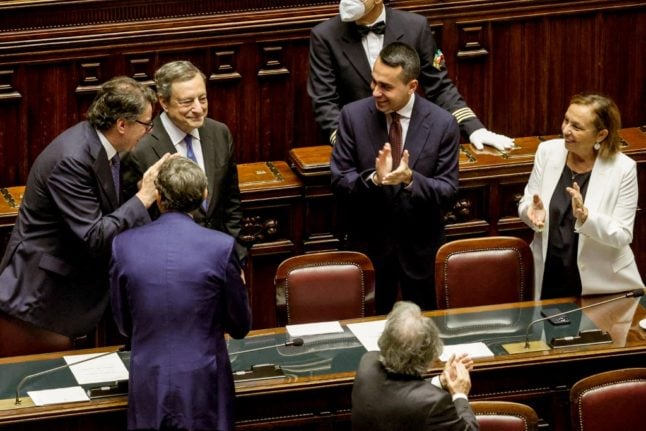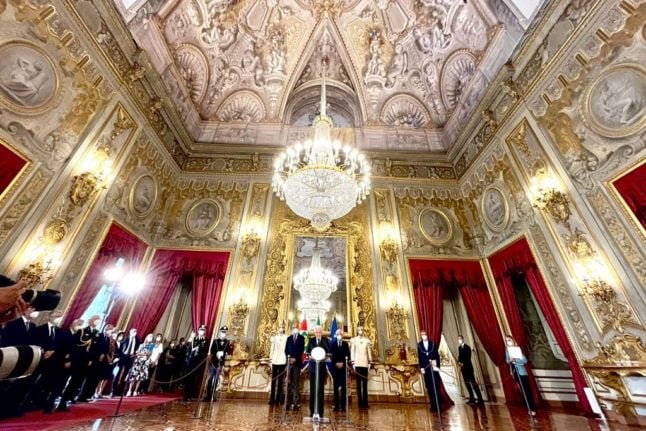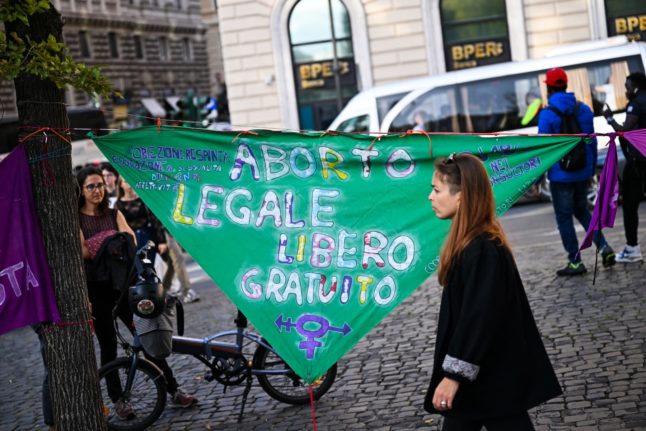Elections will take place on September 25th, a government source told AFP, while the internationally-respected Draghi will stay on as head of government until then.
Dissolving parliament was always a last resort, Mattarella said, but in this case a lack of consensus among the parties that had made up Draghi’s national unity government made it “inevitable”.
READ ALSO: Italy’s Draghi steps down after government implodes
Italy was facing challenges, however, that could not be put on the backburner while the parties campaigned, he said.
There could be no “pauses in the essential interventions to combat the effects of the economic and social crisis, and in particular the rise in inflation”.
Based on current polls, a rightist alliance led by Giorgia Meloni’s post-fascist Brothers of Italy party would comfortably win a snap vote.
“No more excuses”, tweeted Meloni, 45, who vociferously led the opposition throughout Draghi’s term and has long called for fresh elections.
On Wednesday, he attempted to save the government, urging his squabbling coalition to put aside their grievances for the sake of the country.
But three parties – Silvio Berlusconi’s right-wing Forza Italia, Matteo Salvini’s anti-immigrant League and the populist Five Star Movement – said it was no longer possible for them to work together.
The stunned centre-left Democratic Party (PD), which had supported Draghi, said its hopes were now pinned on Italians being “wiser than their MPs”.
Draghi’s downfall comes despite recent polls suggesting most Italians wanted him to stay at the helm until the scheduled general election next May.
TIMELINE: What happens next in Italy’s government crisis?

The Brothers of Italy party, which has neo-fascist roots, is leading in the polls, with 23.9 percent of voter intentions, according to a SWG survey held three days before Draghi’s resignation.
To win a majority it would need the support of the League (polling at 14 percent) and Forza Italia (7.4 percent).
Anxious investors were watching closely as the coalition imploded. Concerns rose that a government collapse would worsen social ills in a period of rampant inflation, delay the budget, threaten EU post-pandemic recovery funds and send jittery markets into a tailspin.
Should a Brothers of Italy-led coalition win, it “would offer a much more disruptive scenario for Italy and the EU”, wrote Luigi Scazzieri, senior research fellow at the Centre for European Reform.
Research consultancy Capital Economics said, however, there were “powerful fiscal and monetary incentives” for the next government to implement the reforms demanded by the European Union, or risk missing out on post-pandemic recovery funds worth billions of euros.



 Please whitelist us to continue reading.
Please whitelist us to continue reading.
Member comments